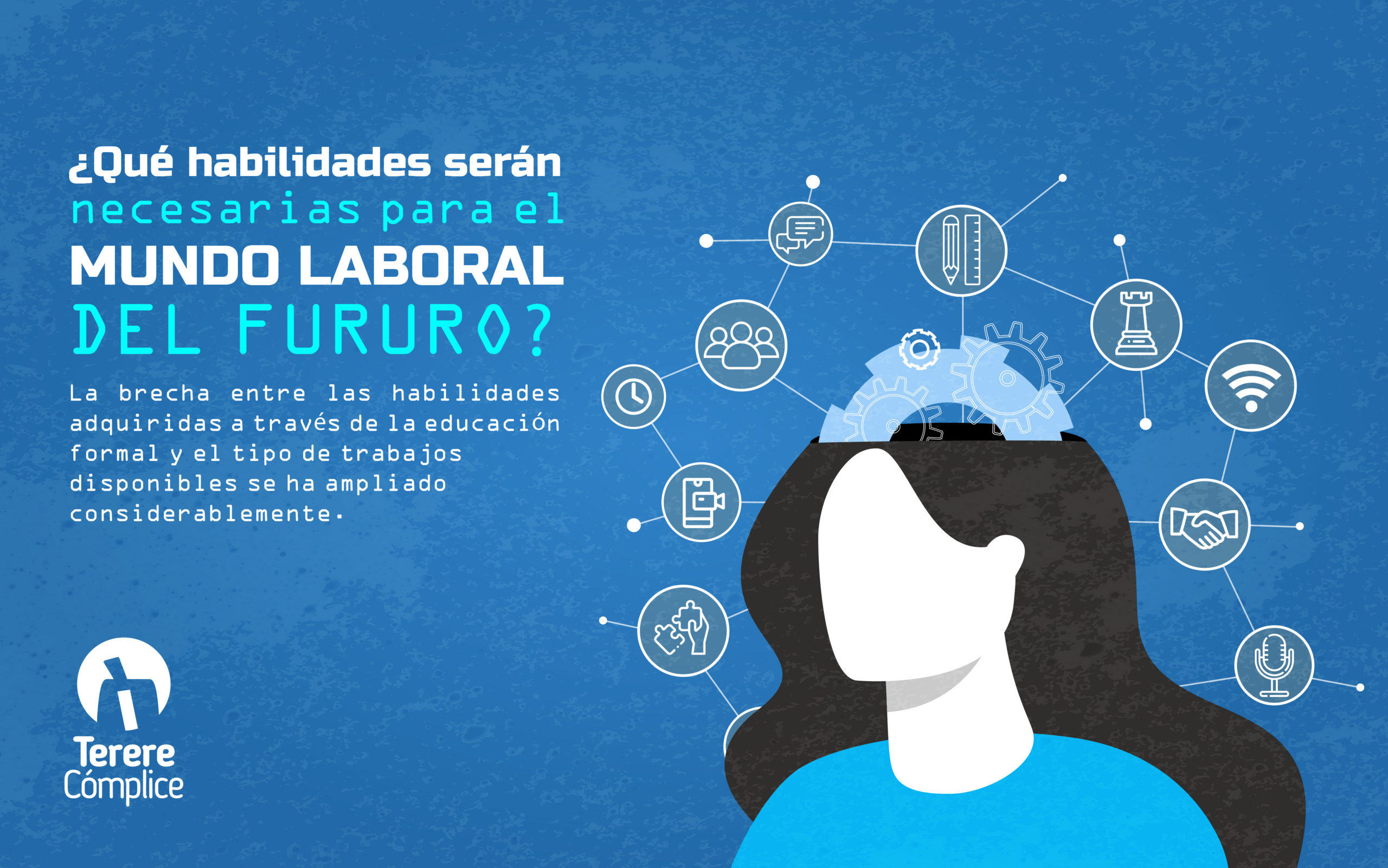
Special series by Terere Cómplice “The future of work and the jobs of the future”
By Claudia Pompa.
Even though developing economies, such as Paraguay, have improved their levels of educational attainment, the gap between the skills acquired through formal education and the type of jobs available has widened considerably. Ironically, in spite of a flood of job seekers, companies are suffering from a critical shortage of highly-skilled workers.
While employers in different industries have different skill requirements, the consensus is that successful job candidates need not only technical skills, but also the soft skills necessary to function in the workplace. Technical skills are hard skills, expertise, or knowledge in specific domain areas, while soft skills are the personal traits, characteristics, and competencies that affect how an individual interacts and communicates with others.
In general, traditional formal education has focused on teaching technical skills. However, at the present, soft skills such as communication, teamwork, and critical thinking have become at least as important as technical skills. This situation is worrying as the lack of emphasis on developing soft skills could lead to workers’ exclusion from the labor market. Workers who lack access soft skills training and development can become trapped in low-skill jobs.
Table: Main skills demanded by employers, projected for 2025
Source: World Economic Forum
This emphasis on combining technical and soft skills explains why many companies have decided to increasingly focus their recruiting efforts on candidates’ skill sets, rather than academic degrees or work experience. Labor market studies show that workers from the current generation change jobs an average of 12 times, staying an average of five years in each job. In the future, the expectation is that people will not only change jobs, but will even change professions at least three times in their lifetimes. This context forces us to put aside the linear view of the professional career and rather to think of each job as a “learning tour”: each job provides new skills, experiences and training that can be transferred to the next “tour”.
The main skills that employers expect will be in high demand in the coming years include critical thinking and analytical skills, as well as problem solving and self-management skills such as active learning, resilience, stress tolerance, and flexibility. It is essential to understand that the jobs of the future will require a process of continual education and training to allow workers to improve and update their skills based on the changing demands of the market. Companies estimate that around 40% of workers will require reskilling of up to six months, while 94% of business leaders expect employees to acquire new skills on the job.
Such high training requirements are worrisome when compared to the systems in charge of meeting them. Despite the benefits of existing training programs, low- and medium-skilled workers generally do not have access to them. Studies carried out in Germany, Hungary, the Netherlands and Finland show that one in three low-skilled workers do not develop new skills during their careers and, therefore, have no way of adapting to technological advances and new requirements in the labor market. Although many companies still need manual labor or jobs that require interpersonal relationships (such as customer service, cashiers, receptionists, etc.), many of these positions are expected to be automated quickly.
The capacity to develop skills that are ‘just in time’ (right when they are needed) and ‘just in context’ (adapted specific needs of problem solving) will largely define each worker’s employability potential.
The need for reskilling and learning new skills has profound implications for education and training systems. While technology has improved the offering and availability of learning opportunities (in almost any subject, anytime, anywhere) there is still a lot of work to do to ensure that these opportunities are accessible to workers from different geographic locations, age groups, and socioeconomic levels, in order to truly develop a skilled workforce.
In general, traditional formal education has focused on teaching technical skills. However, at the present, soft skills such as communication, teamwork, and critical thinking have become at least as important as technical skills. This situation is worrying as the lack of emphasis on developing soft skills could lead to workers’ exclusion from the labor market.
In this context, continuing education, training and skills development programs will be a key element in creating and maintaining a competitive workforce. The education sector will require structural transformations and innovations to improve the capacity, scope and delivery of services. Likewise, education and training centers must substantially expand and increase their services. This will also require a process of dialogue to help answer some important and relevant questions: Who will be responsible for these processes of continuing education, training, and skills development? How do we ensure that the programs are highly aligned with the changing needs of the job market? and, above all, who will finance this investment and how? All difficult questions to answer.
In his book Future Shock, published in 1970, the American writer and futurologist Alvin Toffler remarked that “the illiterate of the 21st century will not be those who cannot read and write, but those who cannot learn, unlearn, and relearn”. More than 50 years later, this statement not only has remained valid but also highlights the importance of the acquisition of new skills and lifelong training for the future of work.
